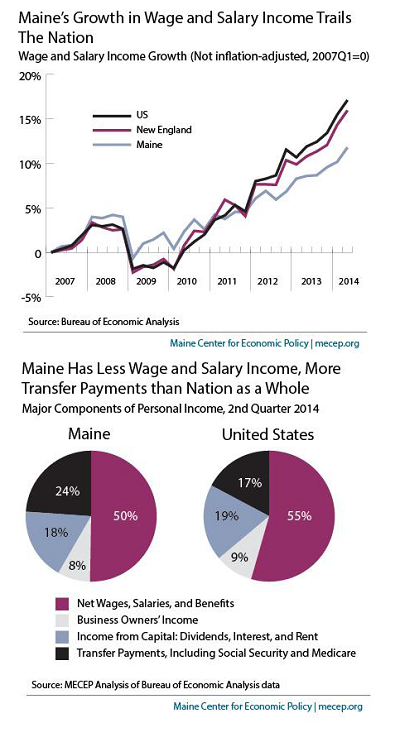Transfer payments including Social Security and Medicare account for a disproportionate share of personal income in Maine and reflect the state’s aging demographic.
Augusta, Maine (Tuesday, September 30, 2014) Analysis by the Maine Center for Economic Policy (MECEP) finds that data released today by the U.S. Department of Commerce’s Bureau of Economic Analysis shows Maine’s personal income growth kept pace with the nation and the region in the second quarter of 2014, but growth in wage and salary income continued to lag behind the nation.
click here for a PDF of the release
“This latest data confirms that Maine’s economy continues to lag behind the nation in critical areas,” said MECEP executive director Garrett Martin. “The limited growth in wage and salary income compared to the rest of the nation is a reflection of the limited job growth we’ve seen in recent years.”
Personal income is the sum of wages and salaries, fringe benefits, bonuses, income from investments, “pass through” income from businesses, and transfer payments like Social Security checks, veteran’s benefits, and Medicare and Medicaid payments. Martin noted that Maine’s aging population who receive Social Security and Medicare benefits is largely responsible for Maine’s high percentage of transfer payments.
“Maine’s wage and salary growth has trailed the nation and New England in recent years and ranks near the bottom of states,” said Martin. “Income for typical Maine households hasn’t grown at all in recent years and remains below pre-recession levels. Today’s data are a reminder that we have much work to do to boost incomes for all Maine families and achieve broadly shared prosperity.”




